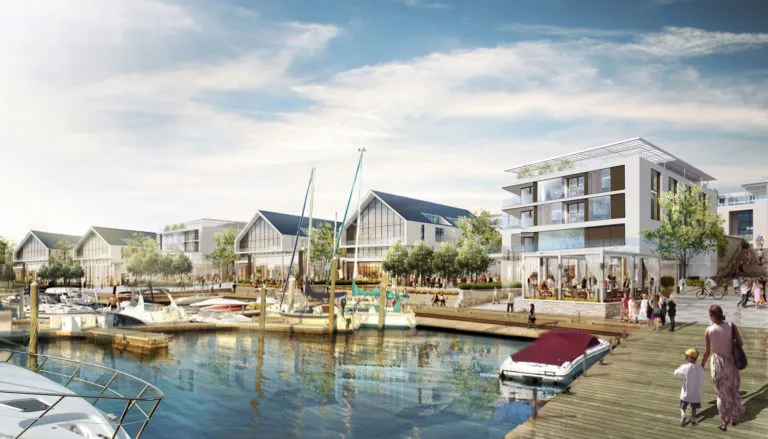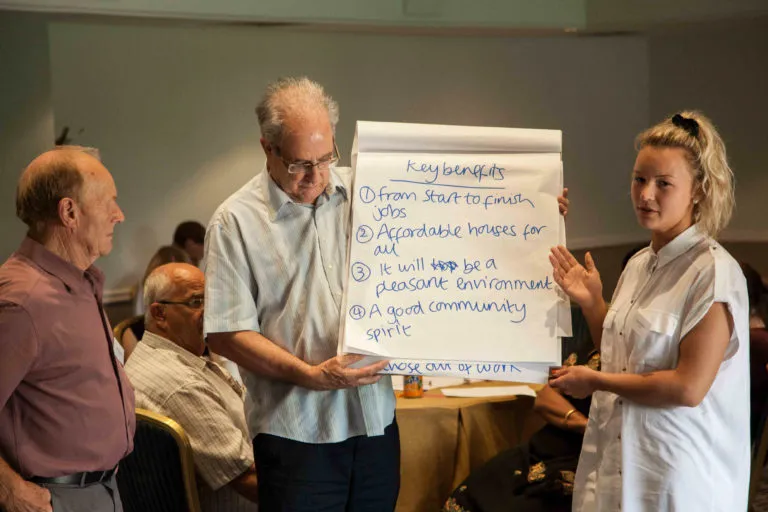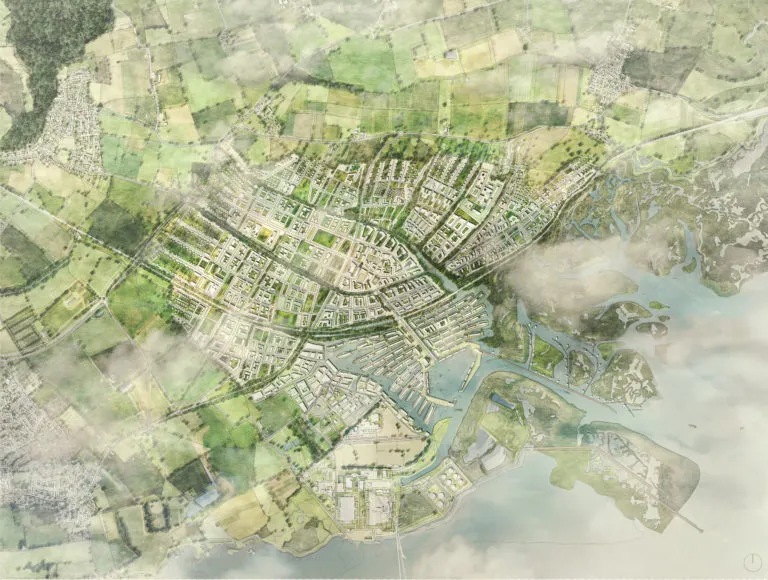Stoke Harbour: a new garden city
Published: by Toby Lloyd
Shelter is very pleased to have been named the runner up in the Wolfson Economics Prize 2014: the world’s second biggest economics prize after the Nobel. Along with hundreds of others we proposed an answer to the question: how would you deliver a new garden city which is visionary, economically viable and popular?
Our design [pdf], developed with architects PRP, was for a new garden city called Stoke Harbour on the Hoo Peninsula in Kent, which could provide thousands of genuinely affordable homes, new infrastructure, services and jobs.
With advice from KPMG we combined our design with an innovative self-financing model that was described by the CEO of Legal & General – a major institutional investor – as “capable of attracting real investment” and going “well beyond the answer to an exam question.” So we are confident that this is a model that is ready to go.
But, you may be wondering, what is Shelter doing entering an economics prize in the first place? After all, Shelter is not an economics consultancy, or even a housing developer.
Shelter’s mission is twofold: to help those most affected by the housing crisis with our frontline advice and support services, and to campaign for action which will tackle the root causes of bad housing and homelessness.
Thanks to the prize, Shelter now has an additional £50,000 to carry out this vital work. But our primary motivation for entering the Wolfson Economics Prize was to promote our policy programme for reviving our dysfunctional housing supply system, which we set out with KPMG in May.
Right now, one of those root causes of homelessness is the fact that we don’t build enough homes. Under successive governments we’ve failed to build as many homes as we need to in order to match an ageing and growing population. Our whole housing system has failed to meet the demand for new places to buy or rent and we’re now dealing with the consequences. The shortage of genuinely affordable homes is particularly acute, and lies behind many of the housing problems faced by the millions of people our advice services try to help.
Shelter entered the Wolfson Economics Prize to show that there are real solutions to this national failure. It is possible to build attractive, green, affordable places – even in the South East of England – which can win local popular support. Our new research showed that people in Medway would support a new garden city in their back yard by 54% to 33%, which rises to more than 60% support when people are assured that, as we proposed, local services will improve as a result.
Of course there will be voices of opposition, there always are. However, the majority are concerned about homes, jobs and services for them and their children, and will support new development if the proposals are right for the area and communicated effectively.
Preparing our entry for the Wolfson Economics Prize gave us a great opportunity to speak to a large number of people about a particular proposal for development. More than any investor, architect, builder or housing charity it is local people who need the homes and who would ultimately live there. There is no need for a council of despair about NIMBYism: our evidence suggests that a local referendum on a new garden city proposal could be won.
In recent years, England’s worsening housing shortage has become a concern for the majority of people. Whether you’re a renter paying sky-high rents, one of the one in three working parents cutting back on food to pay your housing costs, or a homeowner worried about your children or grandchildren’s prospects of ever getting a home of their own, the housing shortage matters to you. That’s why housing is now consistently identified as a top five issue for voters – above crime, education and pensions.
For Shelter, the whole Wolfson Economics Prize has been a massive boost to our campaign to build the homes we need. We’ve shown that it can be done, with decent amounts of attractive and genuinely affordable homes. But we’re still a long, long way from building enough homes in England – and even an ambitious programme of garden cities will take many years to make a difference. The shortage is so severe, and the problems so entrenched, nothing less than a major programme of investment and reform will do. We need action across the spectrum – from infill development, self-build and traditional affordable housing investment, to bold land market reform, new garden cities and urban extensions. All the political parties must commit to an ambitious strategy to deliver the 250,000 homes per year we need.
Solving the housing shortage is possible. Now it’s up to all of us to make it happen.


